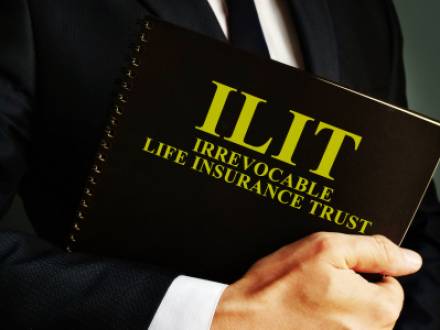 Serving Denton County Since 1992 | 6021 Morriss Rd., Suite 101, Flower Mound, TX, 75028
Serving Denton County Since 1992 | 6021 Morriss Rd., Suite 101, Flower Mound, TX, 75028

Recent Blog Posts
Muniment of Title: When You Can Skip Full Probate in Texas
 Many people hope to avoid the time-consuming and often expensive process of probate; however, in most cases where the decedent has left a will or no estate plan at all, probate is necessary. In the state of Texas, however, a quirky shortcut may allow heirs to bypass the full probate process under certain circumstances.
Many people hope to avoid the time-consuming and often expensive process of probate; however, in most cases where the decedent has left a will or no estate plan at all, probate is necessary. In the state of Texas, however, a quirky shortcut may allow heirs to bypass the full probate process under certain circumstances.
Known as the muniment of title, this process can allow heirs to transfer property without the costs and delays associated with traditional probate. There are only a few specific situations where muniment of title may be available; consulting with an experienced Flower Mound, TX probate attorney can help you determine whether your situation is eligible.
What is a Muniment of Title, and When Is It Allowed in Texas?
The Texas Estates Code, Title 2, Subtitle F, Section 257.001, discusses the muniment of title. This simplified probate process allows for the transfer of ownership of a decedent’s real property by admitting a valid will to probate as a court order, without the need for an executor.
Reverse Mortgages in Texas: Lifeline or Trap for Retirees?
 Elder law is a broad area of law that focuses on seniors and how their age can impact various aspects of their lives. For many retirees in Texas and across the nation, their home is likely to be their most valuable asset. A couple’s home may often be worth more than their entire retirement savings.
Elder law is a broad area of law that focuses on seniors and how their age can impact various aspects of their lives. For many retirees in Texas and across the nation, their home is likely to be their most valuable asset. A couple’s home may often be worth more than their entire retirement savings.
While a reverse mortgage can seem like a good way to access some needed cash while still owning the home, it is essential to understand the risks associated with this type of mortgage. Couples considering a reverse mortgage during their "golden" years should pause and discuss the issue with an experienced elder law attorney in Flower Mound, TX, before signing on the dotted line.
What is a Reverse Mortgage and How Can It Benefit Seniors?
A reverse mortgage is a home loan for those who are 62 years of age or older. This type of loan converts home equity into cash, with no required monthly loan payments by the borrowers. The loan is repaid when the homeowner sells the home or when the last borrower dies. Key requirements include living in the home as a primary residence, ensuring property taxes and homeowner’s insurance are always paid up, and completion of a HUD-approved counseling session.
What if an Elderly Person Has Nobody as a Power of Attorney?
 One of the most important steps an elderly person can take when preparing for the future is choosing someone to serve as a power of attorney. What happens when an elderly Texan has no one they trust, no family member, or no person willing to step into that role? This situation could be the result of family estrangement, outliving loved ones, or a simple lack of reliable options.
One of the most important steps an elderly person can take when preparing for the future is choosing someone to serve as a power of attorney. What happens when an elderly Texan has no one they trust, no family member, or no person willing to step into that role? This situation could be the result of family estrangement, outliving loved ones, or a simple lack of reliable options.
Whatever the reason, many aging adults may find themselves facing serious health and financial decisions with no one legally authorized to assist when issues arise. In the state of Texas, this can potentially lead to court intervention, state oversight, or even complete loss of control.
If you find yourself in a similar situation, it is essential to understand your options and the consequences of not having a power of attorney. A Flower Mound, TX elder law attorney can help you make the necessary decisions now to avoid problems later.
Probate and Guns: How Firearms Are Inherited in Texas
 When someone passes away in Texas, whether they had a will or not, their personal belongings are likely to go through the probate process before being distributed to their beneficiaries. This can include money, real estate, vehicles, and personal belongings like jewelry, household items, collections, and firearms. When guns are involved in probate, things can get more complicated.
When someone passes away in Texas, whether they had a will or not, their personal belongings are likely to go through the probate process before being distributed to their beneficiaries. This can include money, real estate, vehicles, and personal belongings like jewelry, household items, collections, and firearms. When guns are involved in probate, things can get more complicated.
Inheriting a firearm involves not just state probate laws (Title 2, Subtitle F, Section 256.001), but also federal gun laws, licensing requirements, and transfer restrictions. If you are an executor or beneficiary dealing with firearms during an estate probate, it is important to understand the legal ramifications regarding who can and cannot legally inherit a firearm. A Flower Mound, TX probate attorney can help you sift through the legal requirements surrounding guns and probate.
Planning Ahead for Nursing Home Costs in Texas
 Daily rates for nursing homes vary based on where you live and the chosen provider, as well as whether a private or semi-private room is chosen. The median national cost for a private nursing home room in 2025 is $361 per day, or $314 per day for a semi-private room. As you might imagine, staying in a nursing home for an extended period can become very expensive. Location can significantly influence the cost of a nursing home.
Daily rates for nursing homes vary based on where you live and the chosen provider, as well as whether a private or semi-private room is chosen. The median national cost for a private nursing home room in 2025 is $361 per day, or $314 per day for a semi-private room. As you might imagine, staying in a nursing home for an extended period can become very expensive. Location can significantly influence the cost of a nursing home.
Texas, Missouri, Oklahoma, Arkansas, Kansas, and Missouri have some of the lowest costs, with Texas averaging about $185 per day for a semi-private room and $240 per day for a private room. Even so, the monthly rate is more than double the average Social Security benefit. This makes planning ahead essential.
Should You Include An ILIT in Your Estate Plan?
 When planning your estate in Texas, one of your main goals may be to protect your loved ones and minimize taxes. An Irrevocable Life Insurance Trust (ILIT) is a powerful tool that can help you do both. It can be especially appropriate if you have a large life insurance policy or want to ensure your assets are used wisely after your death. Understanding how ILITs work and when they make sense can help you make informed decisions about protecting your family's financial future. An experienced Flower Mound, TX estate planning attorney can help you incorporate an ILIT into your estate plan.
When planning your estate in Texas, one of your main goals may be to protect your loved ones and minimize taxes. An Irrevocable Life Insurance Trust (ILIT) is a powerful tool that can help you do both. It can be especially appropriate if you have a large life insurance policy or want to ensure your assets are used wisely after your death. Understanding how ILITs work and when they make sense can help you make informed decisions about protecting your family's financial future. An experienced Flower Mound, TX estate planning attorney can help you incorporate an ILIT into your estate plan.
What is an ILIT?
An ILIT is created to own and control life insurance policies during your lifetime and manage the proceeds after your death. Once established, it is irrevocable, meaning that you generally cannot change or revoke the trust terms except under very limited conditions. The ILIT becomes the owner of the life insurance policy, and the trust itself is typically named as the beneficiary. This separation removes the policy from your taxable estate.
Estate Planning to Avoid Texas Guardianship
 The prospect of a guardianship being set up to make decisions about your life could be unnerving and concerning. Guardianship can also be time-consuming, expensive, and potentially stressful for families who may already be struggling with a difficult situation if you have been incapacitated and are unable to make decisions. This is where careful estate and long-term care planning can make a big difference to help you avoid guardianship in the first place and maintain control over your future. An experienced Denton County, TX elder law attorney can help you devise an estate plan that avoids guardianship.
The prospect of a guardianship being set up to make decisions about your life could be unnerving and concerning. Guardianship can also be time-consuming, expensive, and potentially stressful for families who may already be struggling with a difficult situation if you have been incapacitated and are unable to make decisions. This is where careful estate and long-term care planning can make a big difference to help you avoid guardianship in the first place and maintain control over your future. An experienced Denton County, TX elder law attorney can help you devise an estate plan that avoids guardianship.
What Is Guardianship?
Guardianship is a legal relationship that occurs after a court appoints someone to make decisions about health care, finances, or daily living needs for a person who is no longer able to make them on their own. While guardianship is sometimes necessary, it can also create problems. The process involves court hearings, attorney fees, and ongoing supervision. It can also take control away from your loved ones and give it to someone the court chooses, not necessarily the person you would have wanted.
How Can You Incorporate Charitable Giving Into Your Estate Plan?
 Having an estate plan is essential for safeguarding your assets and protecting your family and yourself against future unforeseen worst-case scenario events such as incapacitation. There is another key role that estate planning can fulfill, and that is providing a way to ensure your values and legacy live on via charitable giving. Many different instruments can be used to incorporate charitable giving as part of a comprehensive estate plan. Besides their role in cementing your family’s legacy and giving you a chance to give back after you have passed, they can offer great tax savings for your estate. An experienced Denton County, TX, estate planning attorney can help you incorporate charitable giving into your estate plan.
Having an estate plan is essential for safeguarding your assets and protecting your family and yourself against future unforeseen worst-case scenario events such as incapacitation. There is another key role that estate planning can fulfill, and that is providing a way to ensure your values and legacy live on via charitable giving. Many different instruments can be used to incorporate charitable giving as part of a comprehensive estate plan. Besides their role in cementing your family’s legacy and giving you a chance to give back after you have passed, they can offer great tax savings for your estate. An experienced Denton County, TX, estate planning attorney can help you incorporate charitable giving into your estate plan.
What Are Some Common Ways to Incorporate Charitable Giving Into Your Estate Plan?
Beneficiaries of Retirement Accounts
Estate Planning Considerations for Military Families
 Estate planning can help grow your assets, but it is also a way to put in place a plan to protect you and your family against future unexpected events. It can help ensure that your wishes are honored in the event that the worst happens and you face incapacitation or death. Every family should draft an estate plan to protect themselves, but it is especially crucial for members of the military to do so, given the risks and sacrifices that come with military life. Additionally, there are special estate planning tools available to servicemembers and veterans that can help military families meet their goals. An experienced Flower Mound, TX estate planning attorney can work with members of the military to create a comprehensive estate plan that suits their needs.
Estate planning can help grow your assets, but it is also a way to put in place a plan to protect you and your family against future unexpected events. It can help ensure that your wishes are honored in the event that the worst happens and you face incapacitation or death. Every family should draft an estate plan to protect themselves, but it is especially crucial for members of the military to do so, given the risks and sacrifices that come with military life. Additionally, there are special estate planning tools available to servicemembers and veterans that can help military families meet their goals. An experienced Flower Mound, TX estate planning attorney can work with members of the military to create a comprehensive estate plan that suits their needs.
What Estate Planning Tools Should Military Families Use?
There are many ways to structure an estate plan, and they are best suited based on the specific needs of the individual. However, there are a few key estate planning tools that military families should consider, either alone or together:
Can I Disinherit a Family Member in My Texas Estate Plan?
 Deciding who gets what after you pass away can be one of the most emotional and complicated parts of estate planning. Sometimes, that decision includes leaving someone out entirely. Whether it is due to strained relationships, financial responsibility, or deeply personal reasons, the choice to disinherit a family member must be handled carefully. By working with a Texas estate administration lawyer, you can ensure your intentions are clearly stated and legally upheld.
Deciding who gets what after you pass away can be one of the most emotional and complicated parts of estate planning. Sometimes, that decision includes leaving someone out entirely. Whether it is due to strained relationships, financial responsibility, or deeply personal reasons, the choice to disinherit a family member must be handled carefully. By working with a Texas estate administration lawyer, you can ensure your intentions are clearly stated and legally upheld.
Is Disinheriting a Family Member Legal in Texas?
Texas law allows you to disinherit most family members if you clearly state your intentions in a valid will. Texas is a community property state, which means that spouses have some protected rights, but for the most part, you have the legal right to leave your property to anyone you choose.





